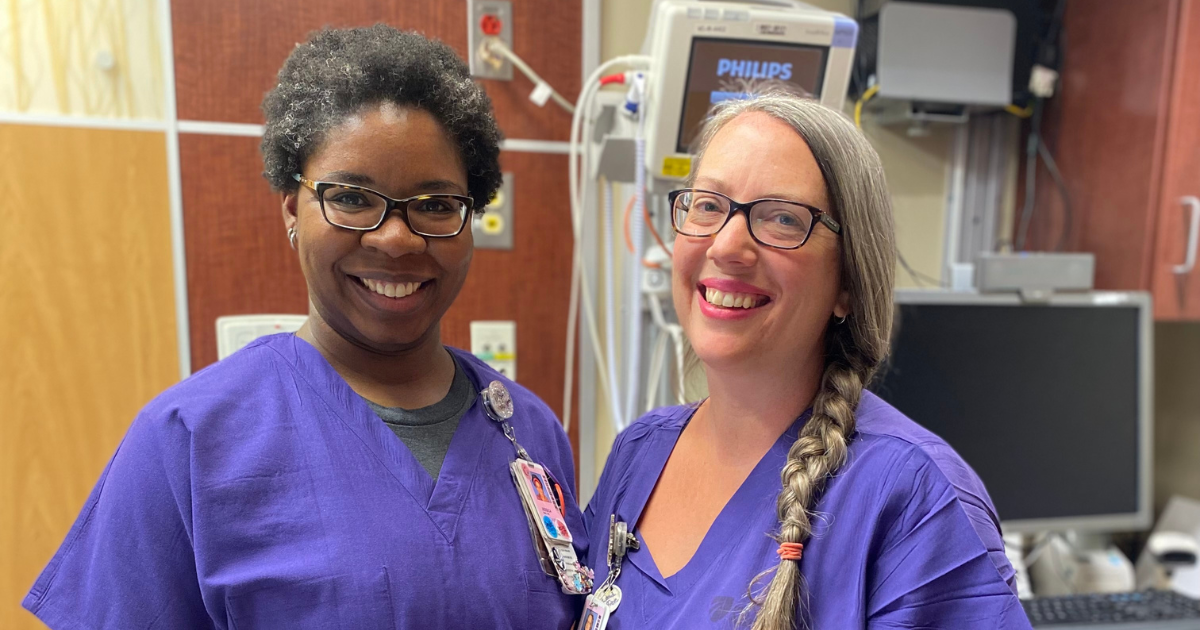Black births matter: It's not enough to 'treat all patients the same'

I am a labor and delivery nurse whose care is impacted by implicit bias. Without constant vigilance and awareness, my patients — especially Black women — are at greater risk of harm and death.
Every health care worker is affected by implicit bias. These are prejudiced attitudes, behaviors and actions in favor of or against a group of people. They occur automatically and unintentionally and affect our judgment, decisions and behaviors.
As health care workers, we are especially affected by implicit bias when we don’t share the lived experiences of our patients. In labor and delivery, this can be lethal. Research shows that Black women are three to four times more likely to die than white women (as high as 12 times in some areas). The cause is not race but racism.
Black mothers and their babies have worse pregnancy and birth outcomes than Hispanic, Asian or white mothers. The babies are more likely to be born early or underweight. The mothers are at greater risk for preeclampsia or sepsis. They are both less likely to survive birth.
Health, education and other privileges don’t protect Black women from these risks. Per 100,000 births in California, 350 babies born to the poorest, least-educated white people died, compared to 437 babies born to the richest, most-educated Black people.
Arline Geronimus, ScD, first linked stress and Black infant mortality with her theory of “weathering.” Her research and new book describe how toxic stress, induced by daily life in a systemically racist society, physically harms Black women. This increases Black mothers’ and babies’ risks of death before, during and after birth.
But medical racism also puts Black people at increased risk. People of color, particularly Black people, are treated differently by health care systems. Among the findings of a recent report and survey:
- People of color were less likely to receive appropriate medications for heart disease, undergo coronary bypass surgery, or receive kidney dialysis and transplants than white people
- Cesarean sections were 40% higher among Black women than among white women
- 20% of Black and Hispanic mothers reported poor treatment from hospital staff because of race, ethnicity, cultural background or language, compared to 8% of white mothers
In my 15 years of bedside nursing and being made aware of the eye-opening statistics, I’ve learned it is not enough to “treat all my patients the same.” Because Black patients are at the highest risk of death and harm during birth, it’s our duty to do everything possible to prevent it. We must constantly address our biases and be responsive in their care.
Improving Black maternal health: A change-maker’s perspective
By labor and delivery nurse Jessica McGhee, RN, BSN
I am an African American labor and delivery nurse who has worked for Nebraska Medicine for seven years. When I started on the unit, there was limited-to-no representation of nurses who looked like me. It was intimidating at times. I felt I had to prove myself to be a part of women’s health and the maternal world that I adore so very much. A Navy brat at heart, I was able to adapt and build a foundation for myself on the unit.
Frankly, until three years ago, I did not know that there is an ever-growing epidemic of Black maternal death in the U.S. The more I learn, the deeper my feelings of denial, anger and depression get. You might say I am going through the stages of grief. I live in a first-world nation that prides itself on so many things, but we are horrifically failing to protect the lives of our Black mothers.
Needed change
There has been a significant shift in the unit in the last few years, with more Black and brown nurse representation. It has been a beautiful and refreshing sight. Having nurses who speak fluent Spanish with our patients is a game-changer. These patients come to our hospital scared, not knowing what to expect in a predominantly English-speaking environment. Seeing someone who “looks like them” and speaks their language, eases their fears.
The same goes for African American and African immigrant patients. For some, a subconscious storing of historical trauma creates fear of receiving medical care from our white medical staff. When they see someone like me, it’s indescribable how relieved they seem. The energy in the room loosens with a sense of “thank goodness” that our nurse will understand “us.”
We all strive to deliver exceptional care. Personally, I had a beautiful birth with my daughter five years ago with one of the best nurses in our unit (who happens to be white) and an extraordinary attending physician and resident (who happen to be white). Providing exceptional care requires understanding who your patients are. It starts when they go to their first prenatal appointment. You can give great care to a laboring mother, but if understanding and respect for who the person is — from cultural practices to the difficulties of their social life — are not there, the patient will sense that. Representation for our patients matters. Providing them with the care that makes them feel related to, seen and heard matters.
I partner with nurse midwife Heather Ramsey, CNM, to educate Black doulas through the Doula Passage Program, sponsored by I Be Black Girl, an Omaha nonprofit that uplifts, supports and protects Black women, girls and femmes. This program is a catalyst for improving Black maternal health in the population we serve. Having birth doulas at the bedside who represent the Black laboring women they serve will be an important and necessary shift.
Our commitment to Black mothers
By Ada Walker, JD, vice president, chief inclusion and diversity officer
 Nebraska Medicine is committed to addressing the systemic issues that have impacted Black mothers and babies for far too long. As the lead sponsor for Nebraska’s Black Maternal Health Month in 2022, we established meaningful relationships with community organizations that directly impact Douglas County. We are building an ecosystem of support for Black mothers and babies through partnerships with community organizations and an internal strategy to strengthen culturally competent clinical care.
Nebraska Medicine is committed to addressing the systemic issues that have impacted Black mothers and babies for far too long. As the lead sponsor for Nebraska’s Black Maternal Health Month in 2022, we established meaningful relationships with community organizations that directly impact Douglas County. We are building an ecosystem of support for Black mothers and babies through partnerships with community organizations and an internal strategy to strengthen culturally competent clinical care.
During the 2022 environmental scan led by the Health, Equity, Diversity and Inclusion Council, or HEDI, we identified specific and tangible actions for improving care for Black mothers. Similarly, our latest Community Health Improvement Plan, or CHIP, calls maternal and infant health a top priority. We are investing time and resources to make systemic shifts in care, delivery and community engagement to shape a more equitable birthing environment.







